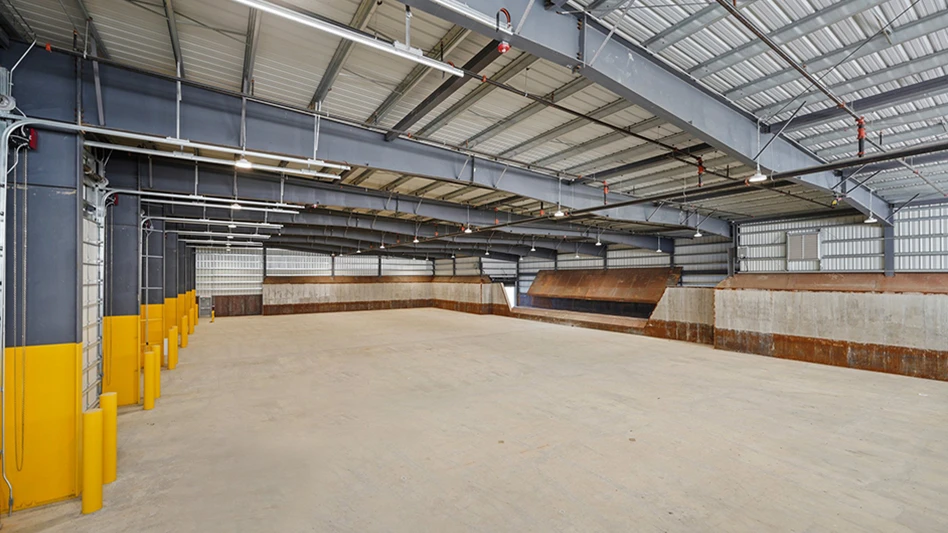1. How do you manufacture sustainable roll-out carts?
_fmt.png)
The best method is one that incorporates high percentages of recycled content without undermining the structural integrity of the product or its physical appearance. Oftentimes, manufacturing a “more sustainable” product requires some manufacturers to compromise on performance or appearance. One of the best methods for alleviating the need to compromise is utilizing a high-pressure co-injection molding process for manufacturing roll-out carts. This allows a cart to be made with a mixture of virgin and recycled content without causing integrity or cosmetic issues. Through this method, the external skin of the finished product is made using virgin material, which can be offered in many colors, while the interior contains large percentages of recycled content from different sources. These two materials come together and act as one in the finished product.
2. What materials can be used in these carts?
Typically, the core of the cart can contain recycled material from multiple sources, including post-consumer, ocean plastic or even bulky rigid plastic that can be very difficult to recycle. It’s critically important to test the performance characteristics of the raw material streams prior to molding, and also the performance of the molded cart, in order to ensure that it will perform as intended. Adhering to this process has even enabled the incorporation of low levels of flexible films, which are often considered to be some of the most difficult-to-recycle plastics. Rehrig Pacific has been adding recycled content into the core of our carts since 2010, and we recently re-signed our commitment to the APR’s Demand Champion program, which is an important step in continuing our pursuit to use even more recycled content in our carts.
3. How do smart carts promote sustainability?
Smart carts are a key element for increasing sustainability. Adding an RFID, bar code and serial number to a cart provides the opportunity to treat each product as a unique asset and to leverage the embedded technology to better understand the specific value that it provides to the customer and to the supply chain. This traceability allows haulers to run their businesses even more efficiently. By allowing haulers to monitor and optimize routes and pick-up times, this creates more efficient and sustainable service for their customers.
4. What happens at the end of life for these carts?
Even though it seems counterintuitive, the first thing we want to do at Rehrig Pacific is to extend the life of the cart as much as possible. This is one of the fundamental attributes of the circular economy and how our total business is defined. We provide our customers with field service support, such as repair and cleaning, in order for them to extract the maximum amount of value from the product. Once the products have reached the end of their life, we ship them through our national network of recycling partners in order to consolidate and process them into a format that we can use in our manufacturing process. We then close the loop by testing the material and manufacturing more products using this content.
5. Where are the opportunities for sustainability in waste?
I believe the single biggest opportunity is for collaboration. We have found that most of our customers champion sustainability and want to reduce waste, and connected to that, their energy footprint. By collaborating across the waste and recycling industry, as well as the global supply chain, we can help turn waste into valuable resources while creating circular economies and circular partnerships. Creating a waste cart out of recycled content and then using that same cart to collect and repurpose even more waste is an exciting opportunity, and it’s a business model that can perpetuate itself while doing good for businesses and the environment. If it makes sense from an environmental and financial standpoint, why wouldn’t you do it?

Explore the October 2021 Issue
Check out more from this issue and find your next story to read.
Latest from Waste Today
- ReMA board to consider changes to residential dual-, single-stream MRF specifications
- Miller Environmental Group Inc. appoints CEO
- DPI acquires Concept Plastics Co.
- Laurel Mountain Capital announces investment in 5280 Waste Solutions
- Cielo investor requests annual meeting
- WIH Resource Group celebrates 20th anniversary
- NWRA: NIOSH cuts a step in the wrong direction
- Valicor Environmental services acquires Affordable Waste Management






